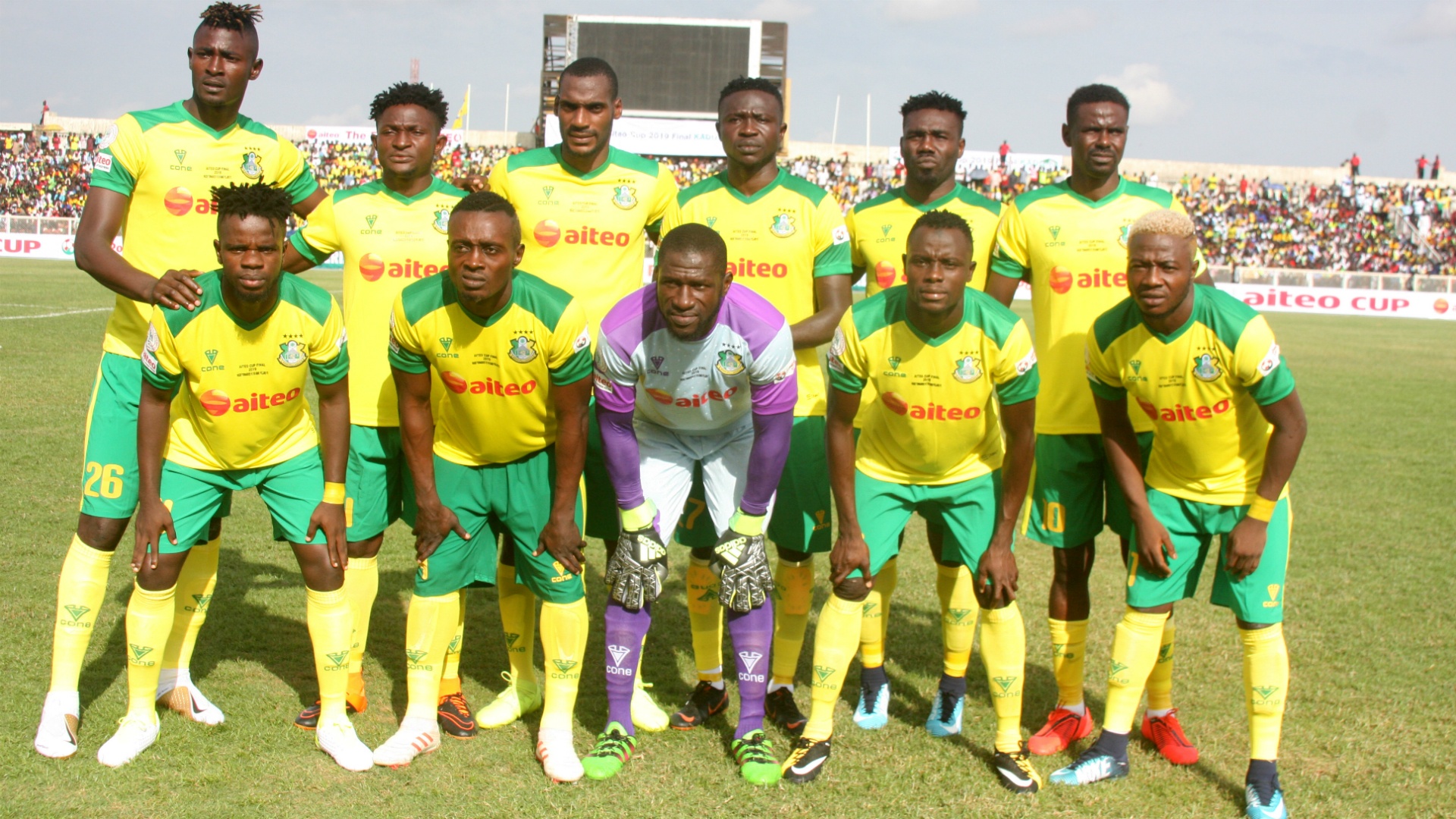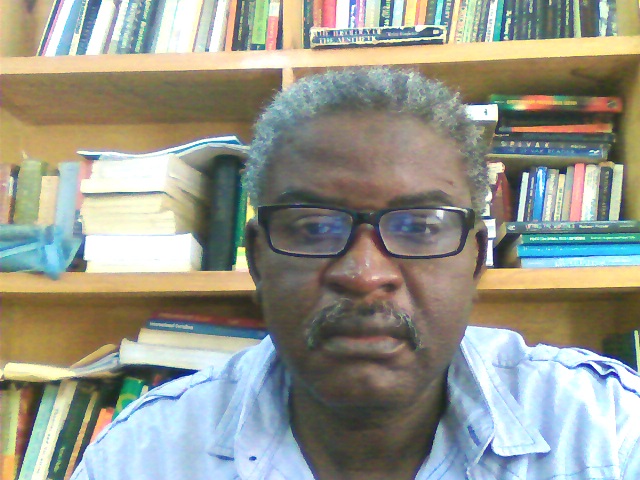Opinion
Our govt navigated through complex situations to keep Nigeria intact – Gen Akilu

Bello Sani Galadanchi
The eight- year rule of President Ibrahim Babangida went through a tough terrain of turmoils and uncertainties capable of derailing the country but always took decisive steps to restore peace and order. It was a leadership shaped not only to direct Nigerian affairs but also guide the West African sub- region and Africa as a whole.
These were some of the motives behind the creation of the ECOWAS Monitoring Group ( ECOMOG) that successfully brought lasting peace to the sister states of Sierra Leone and Liberia. The government firmly believed in laying the foundation of stability, promoting regional integration and economic reforms throughout the continent.
The former Chief of Defence Intelligence, Retired Brigadier-General Halliru Akilu made these disclosures while contributing to a Virtual International Colloquium on the Legacies of President Ibrahim Badamasi Babangida in Ghana on Saturday.

Organized by the Africa Islamic Education Forum, the event attracted eminent participants including former Presidents and Heads of State, political leaders, the academia and researchers from across the continent.
On security generally, General Akilu advised leaders in the sub region to take a closer examination of the IBB reforms in the sector which resulted in the splitting of the defunct Nigerian Security Organization( NSO) into three new security outfits namely the Defence Intelligence Agency( DIA), the National Intelligence Agency ( NIA) and the Department of State Services( DSS).
He emphasized that with the current spate of banditry, kidnappings and general insecurity in the region, now was the time for leaders to replicate the ECOMOG model enunciated by the Babangida government to restore peace and economic freedom.
On human development, General Akilu told participants that IBB deeply connected with the people he served, citing the founding of the famous Better Life for Rural Dwellers by his late wife, Hajiya Maryam Babangida; and the establishment of the Directorate of Food, Roads and Rural Infrastructure ( DFFRI) which littered the national space with roads, water, health and other essential amenities for the benefit of the rural populace.
A member of the Board of Trustees of the Arewa Consultative Forum, General Akilu profoundly thanked the former Mauritius President for her kind compliments on General Babangida and the legacies he put in place.
He said the participation of President Ameenah and other contributors had gone a long way to further enlighten the world about the IBB government’s accomplishments.
The former Director of Military Intelligence described the holding of the Colloquium as an honour to President Babangida and the people of Nigeria.
In her keynote address earlier, the former Mauritius President, Dr Bibi Ameenah Firdaus Gurib- Fakim noted that the IBB era was a period of giant reforms and the intensification of Infrastructure building.
She hailed the establishment of the two political parties, SDP and NRC during the regime, saying it was a good move to foster lasting democracy.
Dr Ameenah advised West African heads of government to emulate the resilience IBB had shown during ECMOG operations, stressing that there was serious need to rejuvenate security of the region in all ramifications.
The daughter of General Babangida, Hajiya Aishatu Babangida expressed gratitude to the former Mauritius President and other speakers, saying that the forum was a great honour to the family of the former Nigerian leader.
Hajiya Aishatu who had taken over as head of the Better Life Project after the demise of her mother, reaffirmed her resolve to execute with rigour all the key objectives of the programme through massive empowerment of local communities.
Bello Sani Galadanchi,
Publicity Secretary,
Arewa Consultative Forum, ACF,
Kano State Chapter.

Opinion
Abdussamad Rabi’u pays tribute to his father Khalifa Isyaku Rabi’u

My Dear Khalifa
It has been seven years, yet it feels like yesterday since you departed. Our memories of you remain vivid, priceless, and are deeply rooted in our hearts. The moments we shared, your teachings and your selfless example continue to shape us daily, to the admiration of many.
Your legacy, especially your deep devotion to Islam and its propagation, still echoes across generations and geographies. Through your life of service, you inspired countless others to embrace kindness, humility, and compassion. You lived not just for yourself but in service to others, and this principle continues to guide our path.
In honour of your memory, we will remain steadfast in our commitment to selfless service. We will continue to support noble causes and charitable undertakings that reflect the values you lived by, regardless of race, gender, or background.

May the Almighty Allah, in His infinite mercy, keep granting you Al Jannah Firdaus. May your soul continue to rest in the eternal peace and light of His divine presence.
Abdul Samad Rabiu, CFR, CON
For the Family
08.05.2025.

Opinion
The need to restore the prestige of Kano Pillars FC

Isyaku Ibrahim
There is no doubt whenever you talk about Enyimba of Aba in Nigeria’s top flight who won the competition nine time, the next team that will come to your mind is Kano Pillars that lifted the trophy on four good occasions. But nowadays,it seems the Kano darling is losing its prestige, recognition and above all popularity in the local league.
This was as a result of lack of total commitment, determination, tenacity, patriotism,diligence and seriousness which the side was known for in the past.

To say the fact, the pyramid City lad was previously rated among the traditional teams in the top flight as they have established and tested players that would not disappoint their teeming fans no matter where they are playing.
It was based on this late Rashidi Yekini while watching the team at Adamasingba Stadium now Lekan Salami Stadium in Ibadan said if he was to play for a local team he would prefer to lace his boot for Kano Pillars ahead of others.
The reason he Said was simply due to excellent free flow football of the team but now it seems that has gone for bad.
When the club was established as early as 1990 among the objectives behind was to boost the name of the state through football and beside that win trophies with a view to competing favourably with others.
While those behind the idea should be commended to a large extent for their foresight in that respect in view of how the team is now a household name in the round leather game countrywide but there is the need for a collaborative effort with a view to normalising things in the ancient city side as the club has now stepped down from its aforementioned aims and objectives.
It is painful that the team’s main priority nowadays was not to lift the league as the case was previously but to survive relegation which was baseless,laughable and nothing to write home about considering their past experience particularly when they were based at Sabongari Stadium.
Definitely,this season is almost over as Remo Stars are as good as being crowned the winners of the event
The best option for Sai Masu Gida is to start early preparation for the upcoming season through putting their house in order aimed at restoring their winning culture as the teeming fans are tired of flimsy excuses on the reason behind their lack lustre performance year in year out.
Honestly, what they are basically hoping for is to see the club matches theory with practice through grabbing the trophy or at least earning one of the three continental tickets in the country.
optimistically this is achievable with the full support of Governor Abba Kabir Yusuf coupled with that of his laborious and submissive Deputy Comrade Aminu Abdulsalam, good management, superb technical crew and the support of ardent fans who are always with the side in either thick or thin.
Ibrahim is a Director Public Enlightenment at Kano State Ministry of Special Duties.

Opinion
In defence of Prof Abdalla Uba Adamu’s beautiful quip on Kano – IBK

Prof. Ibrahim Bello-Kano (IBK)
Double Professor Uba Abdallah Adamu has angered many non-Kano people resident in Kano by his famous, widely circulated quip, an aphoristic description of Kano in which says the anyone tired of (living in) Kano is tired of life. Prof Adamu’s appraisal of Kano is based on a sound premise and a powerful emotional logic. Prof. Adamu’s comment has a powerful pedigree. On the arguments of the highly acclaimed French sociologist and space theorist, Henri Lefebre in “The Production of Space” (1974), it can be shown that Kano, especially the city and the metropolitan area, has three characteristics, typical of the greatest cities in the world since Antiquity:
1. It is a conceived space (an urban area, complete with a series of interlacing and interloping and interlocking urban designs since the 9th century). Kano was already a city and an urban space well before 1903. It’s one of the oldest urban areas in the Sudan.

2. It is a lived space, complete with the everyday experiences of its inhabitants and their emotional identification with it. Hence the many “quarters of the city”— from Alkantara, Alfindiki, Ayagi, to Mubi and Gwangwazo and beyond those.
3. Kano is also a practiced/practised space, with its inhabitants, visitors, and emigré population working to “practice up” the city in their daily lived experiences and within its urban and emotional spaces. That’s the truth of Prof. Abdallah Uba Adamu’s hyperbolic reference to Kano as a barometer of happiness or depression.
Prof Adamu is also correct in that most immigrants to the city never leave it, even if their last name may indicate other towns or cities. Already, Kano is one of the most truly cosmopolitan cities in Nigeria, surpassed only by New York, London, and Abidjan. In 1958, almost a decade before Lefebre’s book, the philosopher of science and urban studies, Gaston Bachelard published “The Poetics of Space” in which he argues that to live, or to choose to live, in a place, say the Kano metropolis, is already to enact an emotional act, and an existential event, in and for which Kano is already a resonant space of intimacy, or an intimate place of lived subjectivity. This is the case because one cannot live in Kano, even for a brief period, without (seeking to) creating a home, a nest, and an intimate space of “Kano beingness” or a Kano-based “being- in-the world”. That’s why Kano evokes and resonates with a strong emotional identification with it. When I was about 8 years old, I was told, on visiting the Dala Hill, that God had planned to create a holy city in Kano, but a dog urinated on the hallowed ground, and that’s how the divine plan was moved elsewhere. Of course, that story is clearly apocryphal, yet it shows how the Kano people are intensely proud of their places and spaces. So, Prof. Abdullah Uba Adamu’s hyperbolic and surreal description of Kano is essentially correct and pleasingly poignant. Many emigré groups are unhappy with his remarks, but if you live in a place, earn a living in it, or draw opportunities of all kinds from it, then you have got to love Kano, the most romantic of cities, a city full of dreams, aspirations, emotional highs and lows, and learn to identify with its fortunes. Kano, the city of gold and piety, recalcitrance and hope, modern politics and ideological contestations; the city of majestic royalty; the city of women and cars, as Shata once described it. Kano… the great Entreport. Kano, your name will endure through the ages. Cheers.
Ibrahim Bello-Kano (IBK) is a Professor of English at Bayero University, Kano.














